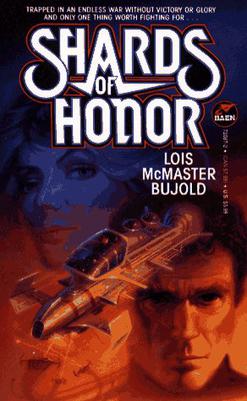I am of the opinion that Mira Grant’s Newsflesh trilogy is perfect summer vacation reading. Even though those books are bloated by all kinds of Coke drinking, logistical chicanery, and wangst, the pages absolutely rip along, like finding a google hole of related self-important blog posts by a group of people who you kind of can’t stand, but also adore and want to have a drink with. I didn’t really track this while I was reading them, as I was too caught up rolling my eyes at the world mechanics – seriously, who is growing food or packing, shipping and delivering all the godamn stuff you assholes are ordering on the Internet – but Grant (possibly slyly) really captures the bullshit teapot tempest feel of the blogosphere. Only two privileged white kids who live with their parents can save us all! But, gosh, it was a lot of fun to read, and perfect for long summer evenings on the back porch.
So I finished them up last summer, and in the last week of this summer, I discovered there are a bunch of enovellas set in the Newsflesh world. Sign me right up, gin and tonic in hand. San Diego 2014: The Last Stand of the California Browncoats feels a little like Hugo-bait (which I see worked, because this was nominated for the Hugo in the novella category for 2013). The Hugo is the more fannish of the sff awards, as it is decided by the participants in World Con, not SFWA or or other more trade-y organizations. Whether that sentence made any sense to you is probably a good indicator of whether this novella will work for you, as Browncoats is aimed pretty solidly at the nerd demographic. A novella about a zombie outbreak at a nerd con being voted on by nerd con participants is a good bet for the win. But hey, I’m a nerd and con goer, also for the win.
But my nerdery aside, I think Browncoats minimized the things that bug me about the Newsflesh world: the tech-babble and less-than-punchy aphoristic intros and extros, the self-aggrandizement of douches, the shaky social architecture. The novella read much more like a lost chapter from World War Z: An Oral History of the Zombie War, with the whingeing, bloggerly interjections of the After the End Times staff kept to a minimum, and the wide ranging events of the Comic Con outbreak related though multiple perspectives and points of view. My favorite of the End Times staff, Mahir, has gone to interview the last known survivor of Comic Con 2014 thirty years later, and the proceedings have that same Studs Terkel retrospective sensibility which both dampens the immediate arm-wheeling and tinges everything with sadness – two things the Newsflesh world could use more of, imao.
Con kid Lorelei goes off to sulk in her hotel while her parents set up the Firefly fan booth. A young woman is rescued by a Jedi when a zombie panel attacks. A blind woman and her dog get stuck in the booth. A starlet for a time-travel cop show – “My TV Guide interview was six paragraphs about my boobs and how they fit into my suit” – is abandoned by her handler with newlywed fans. There’s a lot of geek hat-tips to Who or the “fake geek girl” thing or – obviously – the Whedonverse, while pulling off a pretty good outbreak in a locked room scenario.
Per usual with Newsflesh, I have some serious questions about Kellis-Amberlee, the disease that causes the zombiism, and why the zombies seem to hold off for a period other than narrative convenience and if they’re actually dead and stuff, but that’s not really no nevermind. One of the things I like about Grant’s novels is that the zombies are actually called zombies, not some coy new term. That a convention center full of geeks would leap to the term and start trying to hash out the “rules” for the outbreak based on fiction, even if they get it wrong, felt refreshing. Too often characters in fiction seem never to have heard of zombies, despite the zombie’s half-century of existence in its modern mobbing guise.
So, my read of this was a perfect storm of situation and personality, aimed solidly at my demographic, fixing some broken things for me, and, ah, the drone of cicadas. It’s probably also the only of the novellas I’ve read so far that I might even recommend to people who haven’t read the trilogy, because as an episodic back story piece, you don’t really have to get into the whole thing. Fed is an alternate ending on Feed, and as such, is a major spoiler, and How Green This Land, How Blue This Sea occurs after the Newsflesh events, and is stupid. I haven’t read Countdown, but I will, Oscar, I will. It’s like 90 degrees and the first day of school, and for sure I can get it in before the leaves turn and the first homework is assigned. Allons-y! Rise up while you can!









